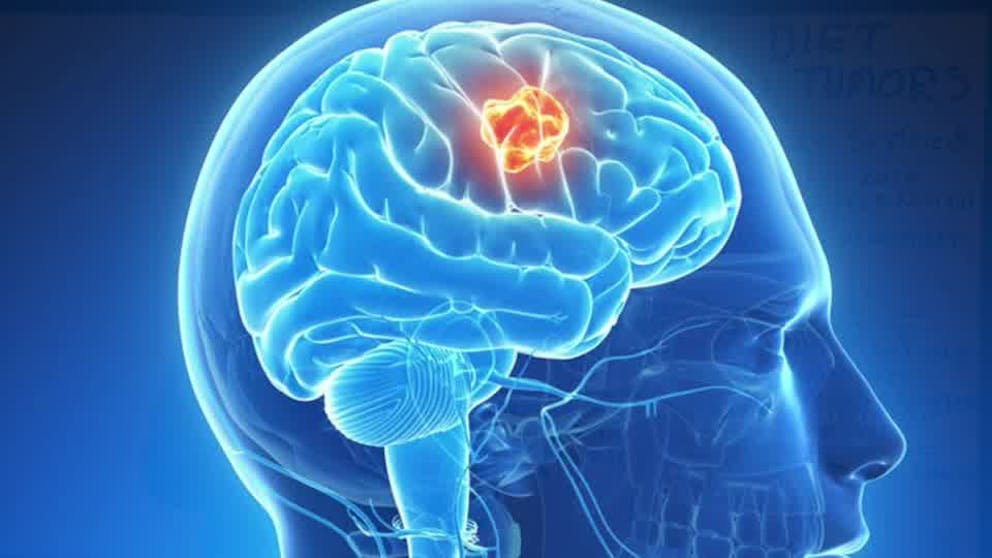Your Brain Needs Glucose MYTH
You've probably heard about the ketogenic diet's incredible effects on weight loss and blood sugar control. And here's something you might not have considered; opting for more fats over carbs doesn't just help shed pounds – it can also sharpen your mind.
That's right - by switching your body's fuel source from glucose to ketones, you may be able to boost brain power, protect against age-related cognitive decline, and even manage neurological conditions like epilepsy and Alzheimer's disease.
So how exactly does the keto diet support brain health? Curious about the science fueling this standout dietary method? Let’s jump right in.
You'll learn how ketones provide a more efficient and stable energy source for your brain cells, reduce inflammation and oxidative stress, and stimulate the growth of new neural connections.
Also, we're diving into fresh studies that show how ketogenic diets might help tackle various brain disorders.
The Science Behind Ketogenic Diets and Brain Health
The ketogenic diet has gained popularity in recent years, not only for its potential weight loss benefits but also for its impact on brain health.
By exploring the fundamentals of how ketogenic diets influence brain function, we can better understand the science behind this fascinating approach to nutrition.
One of the most common myths surrounding brain health is the idea that the brain requires glucose exclusively as its energy source.
However, this notion is far from the truth. The brain is a versatile organ capable of adapting to different fuel sources, and the ketogenic diet takes advantage of this adaptability.
Debunking the Glucose Dependency Myth
The belief that the brain can only run on glucose is a persistent misconception. While glucose is indeed the brain's primary energy source under normal dietary conditions, it is not the only one.
The brain possesses the remarkable ability to utilize alternative fuel sources, particularly ketones, when glucose availability is limited.
Ketones, which are produced by the liver during periods of low carbohydrate intake or fasting, can effectively cross the blood-brain barrier and provide energy to brain cells.
In fact, research has shown that the brain can derive up to 75% of its energy needs from ketones when glucose levels are low.

Transitioning to Ketones for Brain Energy
When an individual adopts a ketogenic diet, which typically involves consuming very low amounts of carbohydrates and high amounts of healthy fats, the body undergoes a metabolic shift.
As glucose levels drop, the liver begins to produce ketones from fatty acids, providing an alternative energy source for the brain.
This transition from glucose to ketones as the primary brain fuel has several potential benefits.
Ketones have been shown to be a more efficient energy source for brain cells, producing more ATP (the cellular energy currency) per unit of oxygen consumed compared to glucose.
Additionally, burning fat as a fuel source may be healthier for the brain than relying solely on sugar.
The myth that the brain can only run on glucose is not true. The body can convert to another fuel source called ketones when glucose is depleted. Burning fat as a fuel source is healthier for the brain than burning sugar.
Ketogenic Diet's Role in Neurodegenerative Diseases
Beyond its impact on brain energy metabolism, the ketogenic diet has garnered attention for its potential role in managing and improving neurodegenerative conditions such as Alzheimer's disease and dementia.
By delving into the research findings, we can gain insights into how this low-carb, high-fat approach may offer therapeutic benefits.
Alzheimer's, Dementia, and Insulin Resistance
Alzheimer's disease and dementia have been linked to insulin resistance, a condition in which the body's cells become less responsive to insulin, leading to impaired glucose metabolism. This connection has led some researchers to refer to Alzheimer's as "type 3 diabetes".
Insulin resistance in the brain can contribute to the accumulation of beta-amyloid plaques, a hallmark of Alzheimer's disease.
By adopting a ketogenic diet, which helps to reduce insulin resistance and improve insulin sensitivity, individuals may potentially lower their risk of developing these neurodegenerative conditions.
The Protective Effects of Ketosis
Ketosis, the metabolic state achieved through a ketogenic diet, has been associated with several protective effects on brain health.
When the brain relies on ketones for energy, it experiences more stable energy levels, reducing the risk of neuronal damage and inflammation.
Moreover, ketones have been shown to possess neuroprotective properties, potentially slowing down the progression of neurodegenerative diseases.
Studies have demonstrated that individuals with Alzheimer's disease who followed a ketogenic diet experienced improvements in cognitive function and memory.
Going into ketosis has been linked to improving dementia and Alzheimer's. There is a connection between insulin and the plaque that accumulates in Alzheimer's patients. Alzheimer's and dementia may be insulin-related, known as diabetes type three.
Addressing Common Concerns with Ketogenic Diets
While the ketogenic diet has shown promise in supporting brain health, it is essential to address some of the prevalent misconceptions and concerns surrounding this approach.
By tackling these issues head-on, individuals can make informed decisions about whether a ketogenic diet is right for them.
Ketosis vs. Ketoacidosis
One common misconception is the confusion between ketosis and ketoacidosis.
Ketosis is a natural metabolic state in which the body produces ketones for energy, typically achieved through a low-carb, high-fat diet. It is a safe and beneficial state for most individuals.
On the other hand, ketoacidosis is a dangerous metabolic condition that primarily affects individuals with type 1 diabetes.
In ketoacidosis, the body produces excessive amounts of ketones, leading to a significant drop in blood pH levels. It is a medical emergency that requires immediate treatment.
Mitigating Side Effects through Proper Diet
Some individuals may experience side effects when transitioning to a ketogenic diet, such as the "keto flu," which can include symptoms like fatigue, headaches, and digestive issues.
However, these side effects are often temporary and can be mitigated by ensuring a proper and nutrient-dense diet.
Consuming a variety of low-carb vegetables, healthy fats, and moderate amounts of protein can help prevent common side effects associated with the ketogenic diet.
Adequate hydration and electrolyte balance are also crucial for minimizing potential discomfort during the adaptation phase.
Running the body on ketones provides better energy for the brain and stabilizes blood sugar levels. Ketosis is different from ketoacidosis, which is a disease state associated with diabetes.
Consuming enough vegetables can prevent side effects like bad breath, constipation, and kidney stones.

Enhancing Brain Function with Ketogenic Delights
Indulging in cognitive cravings can be both delicious and beneficial when it comes to enhancing brain function on a ketogenic diet.
With treats like coconut chocolate chip cookies, you're not just satisfying your sweet tooth; you're also providing your brain with essential nutrients for optimal performance.
These cookies offer a delightful blend of coconut's healthy fats and the antioxidant-rich goodness of dark chocolate, making them a tasty and brain-boosting snack option for keto enthusiasts.
Conclusion
For boosting brain power, you can't go wrong with giving the ketogenic diet a try.
By providing a cleaner, more efficient fuel source for your brain cells, this low-carb approach can help you think more clearly, improve memory and focus, and protect against age-related cognitive decline.
Plus, emerging research suggests that ketogenic diets may offer new hope for managing neurological conditions like epilepsy, Alzheimer's, and Parkinson's disease.
But the benefits don't stop there. Imagine feeling happier, dialing down brain puffiness, and giving birth to new neuron bonds—all perks of embracing keto.
So if you're looking to optimize your brain function and protect your most valuable asset, it may be time to give the ketogenic diet a try. With a little planning and persistence, you can experience the remarkable brain-boosting benefits of this powerful nutritional strategy.
Previous blog
What Is the Most Important Electrolyte?Next blog
An AMAZING Technique for Left Knee PainTags

Popular
08/21/2024
46.9K views
05/22/2024
41.2K views
11/18/2024
244K views
03/18/2024
11/21/2022




